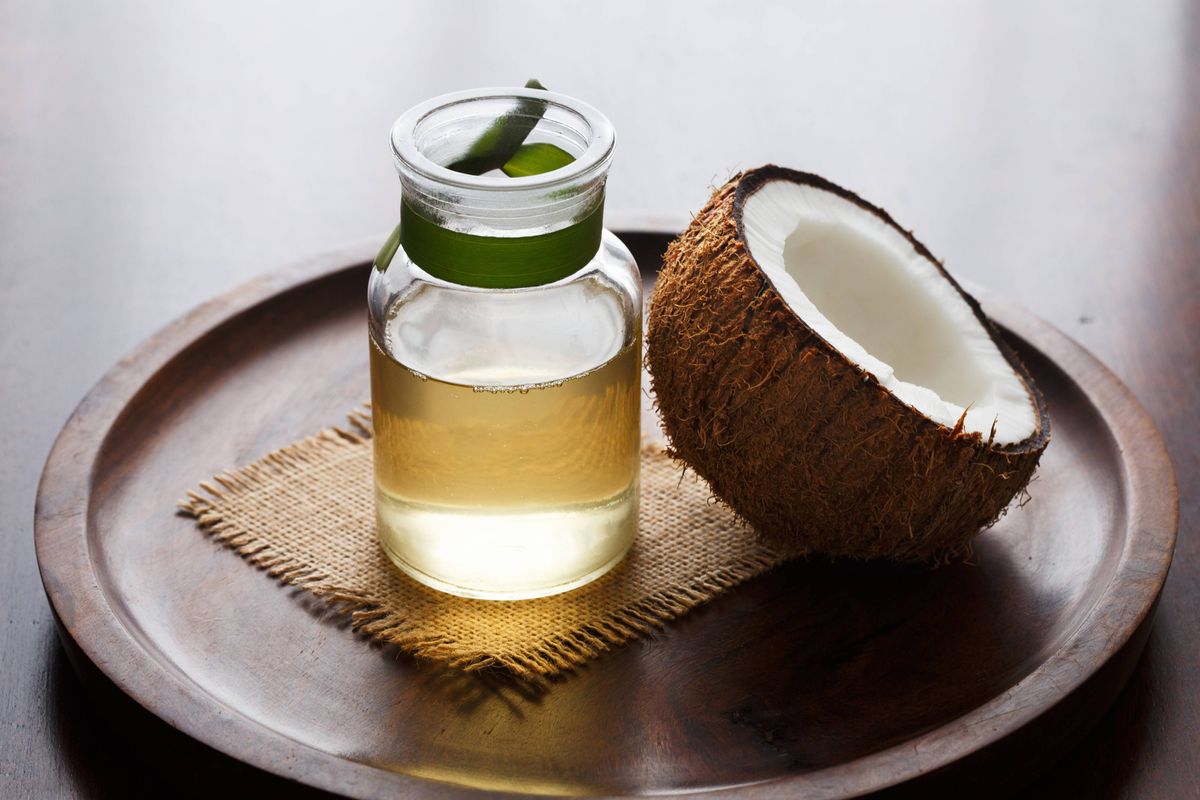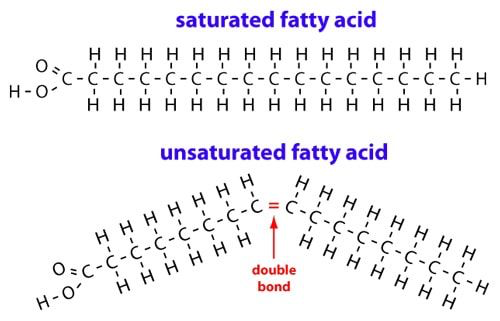
Coconut oil received a recent swipe in light of a controversial statement released by a Harvard professor claiming that coconut oil is "pure poison". Our customers have reached out to us to shed some light on this issue, and we strive to do just that with this article.
The fact that saturated fat is bad for you is a big fat myth, and it sits right up there along with Big Foot, unicorns and dragons.
Let's break this article down to bite sizes (warning: it may get a little science-y)
What is saturated fat?
Fats are macronutrients that give us energy when consumed.
Each fat molecule is made of one glycerol molecule and three fatty acids, and these fatty acid are either saturated, monounsaturated or polyunsaturated. Saturation in this case has to do with the number of double bonds in the fatty acid molecule.
Saturated fatty acids have no double bonds, monounsaturated fatty acids have one double bond and polyunsaturated fatty acids have two or more double bonds.

In actual fact, fats contain a combination of different fatty acids. No fat is pure saturated fat or pure mono- or polyunsaturated.
Fats that are mostly saturated (like butter) tend to be solid at room temperature, while fats that are mostly unsaturated (like olive oil) are liquid at room temperature.
Why does saturated fat have a bad name?
Some time ago, a major epidemic of heart diseases ran rampant in America and it quickly became a common cause of death. Researchers found that eating saturated fat seemed to increase levels of cholesterol in the bloodstream, which led to the correlate assumption that high cholesterol links to an increased risk of heart disease.
In a nutshell, their findings suggested that if saturated fats (a) raises cholesterol (b) and cholesterol causes heart diseases (c), therefore saturated fat causes heart diseases (a causes c). These findings have led to the diet-heart hypothesis and have since been turned into dietary policy.
However, these claims at the time were not backed by experimental evidence on humans and were merely based on observations from animal studies (1).
Hence, saturated fats have gained bad rep as culprits behind heart diseases by raising cholesterols - a claim made without proper experimental evidence.
What's the real story behind saturated fats and cholesterol?
Cholesterol is commonly broken down into two categories; the 'bad" LDL (Low Density Lipoproteins) and the "good" HDL (High Density Lipoproteins).
At first, scientists measured total cholesterol (both LDL and HDL); so having high levels of HDL actually contributes to a high total cholesterol. Later, scientists discovered that while LDL led to increased risk of heart diseases, HDL was linked to reduced risk.
Because saturated fat raised LDL levels, scientists immediately assumed that more high LDL led to increased risk of heart disease, while conveniently ignoring the fact that saturated fat also raises HDL levels.
New research has surfaced showing that LDL isn't necessarily "bad" due to the various subtypes of LDL (2, 3, 4). Simply put there are small LDLs (small lipoproteins that can penetrate arterial wall easily, leading to heart diseases) and large LDLs (large, fluffy lipoproteins that can't penetrate arterial walls easily).
People with more small LDL particles are more susceptible to heart diseases compared to those with mostly large LDL particles. Therefore, in order to reduce the risk of heart diseases, we want to have mostly large LDL particles and as little small ones as possible. Its interesting to note that studies (5, 6) have shown that eating saturated fat changes the LDL particles from small to large.
Overall, findings show that saturated fats in fact raise HDL ("good" cholesterol) and change small LDL ("bad" cholesterol) into large LDL, which is mostly benign.
TL;DR: In conclusion, what does all this mean?
The link between saturated fats and heart disease has been under serious scrutiny for a long time. However, there are no significant statistical associations between saturated fat and increased risk of heart disease.
The fats that your should avoid like the plague are trans fats and processed vegetable oils. Trans fats are made by exposing polyunsaturated vegetable oils to a chemical process involving high heat, hydrogen gas and a metal catalyst.
Saturated fats, on the other hand, do have important benefits that should be celebrated! Coconut oil like Medella Coconut Cooking Oil is excellent for cooking because saturated fats do not have double bonds and are highly resistant to damage due to heat (7).
Having said that, we do concur that eating too much of anything is a bad idea. So if you're into coconut oil like we are, be careful to not overindulge and take care of your body by living an active lifestyle!




